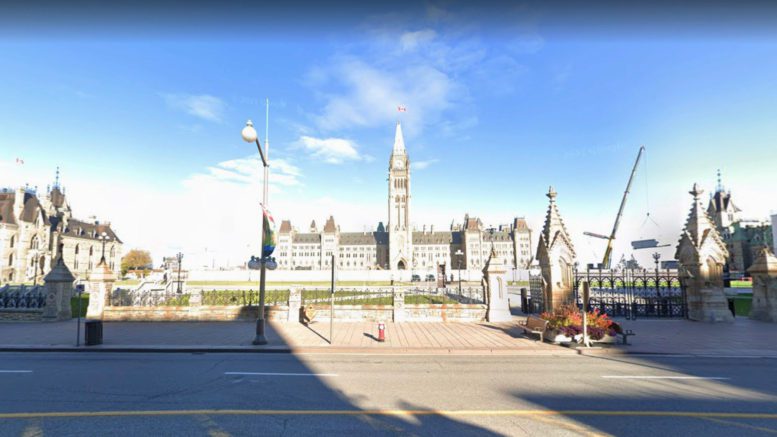The Members of Parliament have resumed their governing duties for the first time since Prime Minister Justin Trudeau called a snap election in August leaving parliament dissolved. Canadians can expect to hear a lot about climate action in the coming months.
Across the country, Members of Parliament are suggesting measures to address climate change in their own ridings. Though MPs often get caught up criticizing each other’s commitment on this issue, they are in overarching agreement on the importance of this critical challenge facing Canada.
Since the first house session on Nov. 22, Liberal MP Anthony Rota has been voted in as the House of Commons Speaker, the new Governor General Mary Simon delivered the throne speech on Nov. 23, focussing on the nation’s recovery from the pandemic, and a vote permitted MPs to continue participating in their House of Commons work remotely.
Julie Dabrusin, Liberal MP for Toronto-Danforth, says her top priority right now on Parliament Hill is addressing climate change in a swift and serious manner.
Dabrusin highlights that here in Toronto, there have been successes related to climate change. Moreover, the city of Toronto is aiming for net-zero emissions by 2040, a decade earlier than planned. But, more dedication and discussion is needed from all levels of government in Canada in order to reduce emissions on a national level and fully address the climate crisis.
“I mean, no question what we’re seeing with floods in BC are very clear incidents where you can see the impact of climate change in our country,” Dabrusin said. “Even this summer though in Toronto we had days where there was smoke in our skies because of all the wildfires in northern Ontario, which is, again, a telling sign of the impact of climate change.”
Due to flooding in BC in mid-November, many farmers are facing the bewildering challenge of keeping their livestock alive. Those floods led to thousands leaving their homes and at least four people dying.
In Toronto, the Don River has been flooding for thousands of years and will continue to flood with every major rain storm. This is a challenge partly because construction and building up near the river is continuing to increase.
“Federally, we are investing right now, with our city and province, in climate change mitigation measures like flood protection and the Don River,” Dabrusin said. “There’s so much land along the Don River that’s in a floodplain, and creating that flood protection is important as a way to protect people in our city. In fact, in Toronto-Danforth specifically, the flood protection projects would help to protect about 800 homes.”

Dabrusin expressed the value she places in being in contact with her constituents and hearing what issues are important to the people of her riding so she is well prepared when in the House of Commons.
“One of the most important things is for people to reach out to me to let me know what are the changes that they need to see,” she said. “That’s how I get the input I need to do my work.”
The Liberals are talking about addressing climate change and pollution with swift and climate action, while, Erin O’Toole, leader of the Conservative Party of Canada, argues climate action needs to be designed around the prioritization of economic strength and creating employment opportunities now and in the future.
In Alberta’s Calgary Nose Hill riding, Conservative MP Michelle Rempel Garner held a press conference last month, where she emphasized her party’s commitment to fight climate change.
During the press conference, Garner said efforts to address climate change must not only lower carbon usage, but also create environmentally friendly and sustainable alternatives for necessities like transportation.
“You have to make sure that people have affordable alternatives to carbon in order for that behaviour to change,” Garner said. “I don’t understand why we can’t have it all … using Canadian energy as part of a transition to a low carbon economy.”
The New Democratic Party continues to position itself as an alternative to the Conservatives and Liberals, with an emphasis on Canadians coming together while valuing family, employment, health, and services.
The NDP wants to limit emissions, moving Canada to net-zero emissions quicker than the Liberals are planning to, while also protecting the employment of skilled workers.
A decade and a half, NDP leader Jack Layton pushed for “climate accountability.” Bill C-12, putting into policy our society’s aim to reach net-zero emissions by 2050, was passed not long ago.
Today, the NDP continues to work towards short-term goals that will set our society up to achieve the long term goal of limiting temperature increases to one and a half degrees globally.
Another of the major NDP goals is to lower Canada’s emissions to 50 per cent of 2005 amounts by 2030. But if possible, the party will try to lower emissions even more than that.

